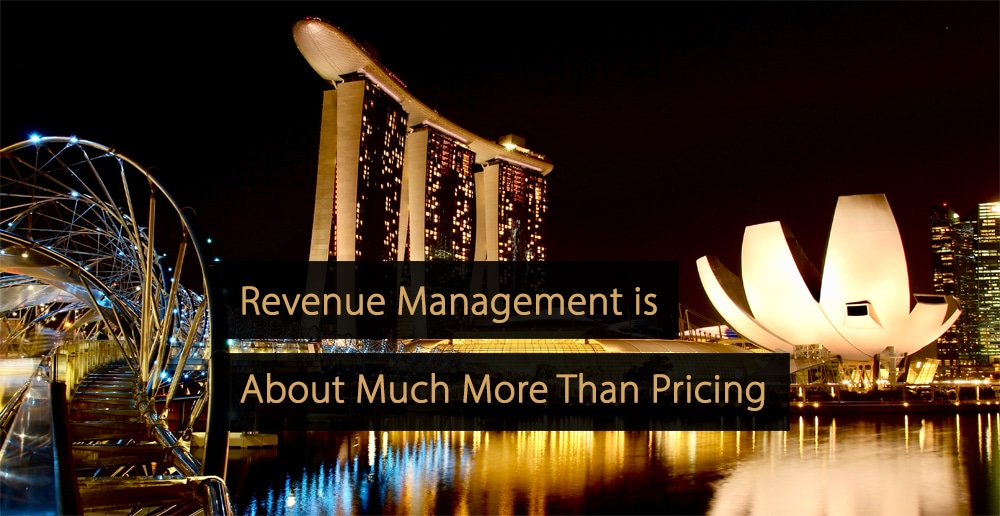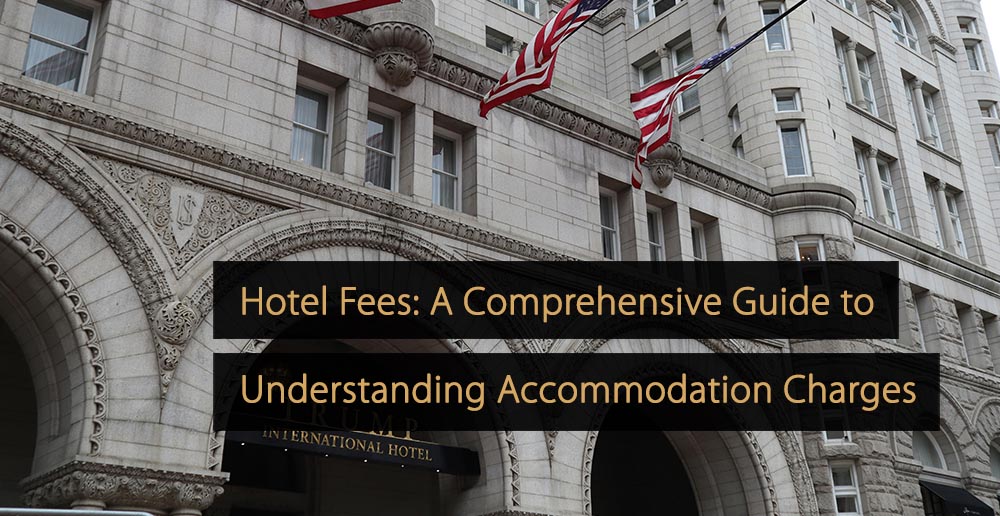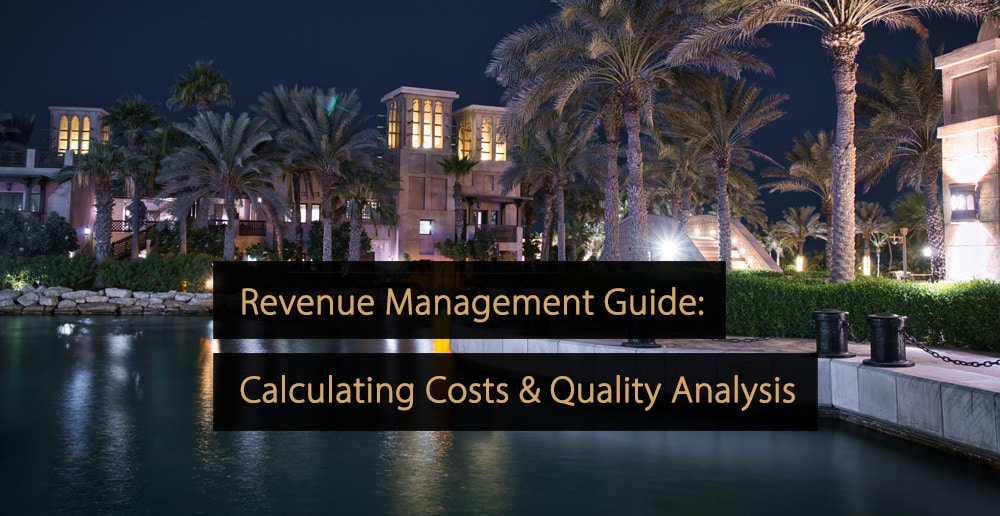Establishing a hotel budget involves estimating revenue and expenditure over a defined period and establishing rules about how much money is available based on various factors, including changes in customer demand. In this article, you can access some effective budgeting tips for your hotel.
Table of Contents:
- What Is the Hotel Industry?
- What Is Hotel Revenue Management?
- Why Is it Important to Strategize Your Hotel Budget?
- 7 Tips to Boost Your Hotel Budget Strategy
- 3 Investments in Your Hotel Budget to Meet and Exceed Modern Guest Expectations
- Hotel Budget: Revenue Management KPI Explanations
- Hotel Budget: Pricing Strategies to Boost Revenue
- How Open Pricing Can Help Your Hotel Budget
- What is Hotel Asset Management?
What is the Hotel Industry?
Before focusing on the issue of your hotel budget, it can be useful to be clear on exactly what the hotel industry is. By most accepted definitions, the hotel industry is a part of the wider service industry. More specifically, it is centered on providing guest lodgings or temporary accommodation.
The hotel industry can also be considered a sub-division within both the travel and tourism industry, which is focused on temporary travel for the purposes of leisure and business, and the hospitality industry, which is focused on the reception of guests and the provision of pleasant experiences. Businesses operating within the hotel industry will provide guests with overnight stays and relevant services in exchange for money.
Although the name indicates that it relates to hotels, most definitions include all forms of temporary guest accommodation, including hotels, resorts, inns, motels, holiday cottages, hostels, and bed and breakfasts. In the article “Hotel Industry: Everything You Need to Know About Hotels”, you can find much more.
What Is Hotel Revenue Management?
When optimizing a hotel budget, hotel revenue management is vitally important. Hotel revenue management is a discipline that centers around optimizing financial results. It uses analytics to forecast demand and implement pricing and distribution strategies accordingly.
Revenue management is a fundamental part of hotel management, and an excellent way to think of it is as follows: revenue management is the process of selling the right room, to the right guest, at the right moment, at the right price, using the right channel, and doing so with the best overall cost efficiency. In the article “Revenue Management: The Basics of Revenue Management Explained!” you will learn more about revenue management, its relevance to hotel budgeting, and the most useful strategies.
Why Is it Important to Strategize Your Hotel Budget?
A hotel budget is an estimate of income and expenditure over a defined period of time. When hotels have a reliable estimate of these figures, they can make more informed decisions about where and how much they can afford to spend.
However, hotel budgeting goes beyond simply providing information about available finances. Hotels can use their budget to analyze spending and make strategic decisions, such as identifying areas where cost-cutting measures can be implemented or services not delivering value.
The modern hotel industry has many different components, from the core business of selling hotel rooms to the various other hotel departments, including the restaurant and bar staff and those working to provide business conference facilities. The broader business strategy can quickly fall apart if a hotel budget is inaccurate.
7 Tips to Boost Your Hotel Budget Strategy
In the sections below, you can access seven tips to boost your hotel budget strategy.
1. Forecast by Analyzing Historical Data
One of the best ways to accurately calculate a hotel budget is to look for clues by analyzing historical data. In many cases, hotels will have expenses and changes in demand that are predictable, in the sense that they occur at the same times every year, for well-established reasons, and this can provide vital information.
For example, suppose there is an established trend that shows that food expenses increase significantly every December in the build-up to the Christmas period. In that case, using this to inform your hotel budget makes sense. Trends within historical data can allow hotels to anticipate changes in expenses or income before they occur.
2. Create a Demand Calendar
The level of demand from customers is one of the most important hotel trends to track, and once a hotel has sufficient data, it can use this to create a demand calendar. This document should precisely demonstrate what happens to demand levels for hotel rooms, corporate services, and other offerings throughout the year.
A demand calendar should explain the general trend and provide anticipated occupancy rates and other important information. This document can then be used to make plans related to your hotel budget, such as maximizing revenue at times of high demand so that the impact of low-demand periods is less significant.
Video: What is hotel forecasting?
3. Track Staff Productivity and Performance
Next, creating and optimizing your hotel budget will require understanding your workforce, especially regarding productivity and other key performance indicators. You should be able to build a picture of how productive they are and how often they work for each employee and department.
From there, it becomes easier to understand hotel operations fully. For instance, is there a correlation between salary and productivity? Are people more productive at certain times of the year? To what extent are productivity and job satisfaction linked? Once this is understood, steps can be taken to maximize employees’ value.
4. Identify Annual Operational Factors
Every hotel will have many operational factors to consider when establishing a working hotel budget. A simple example would be the weather issue and its impact on hotel operations, such as an increase in demand when the weather is warm and a decrease during the coldest months.
Many other factors can influence hotel operations in similar ways. The presence of major events in the local area could help you to attract more guests. At the same time, guest satisfaction levels and online customer reviews quality can also influence demand. It may also be that certain factors help you to attract more families or more corporate guests.
5. Take Incentives Into Account
Hotels need to track all expenses associated with running a hotel, and it can be surprisingly easy to miss some when managing a hotel budget. A good example of this is the financial incentives given to employees. If you do not continually and accurately track the incentives allocated to different employees and departments, you could easily miscalculate the amount of money your hotel has to spend on improvements, hotel technology, and marketing.
The best approach here is to treat incentives as if they will be paid, regardless of whether staff meets the requirements. This ensures that your hotel budget always compensates for the maximum amount you will spend on incentives, and any unpaid incentives become additional money for your hotel.
6. Compare Year-to-Date Performance
Another key component of effective hotel budgeting involves comparing the year-to-date performance against previous years. This will measure attrition rates, total revenue, and average daily rate (ADR). These performance metrics can help give you a clear sense of where performance stands this year.
Once you have established this picture of current performance, you can compare these metrics with those from previous years. Have you noticed any significant changes? Are you generating more or less revenue? Are any increases or decreases one-off events or part of a trend that may span several years? Longer trends, in particular, can be used to prepare your hotel budget better for the months and years to come.
7. Estimate Fixed Labor Attrition for Hotel Budgeting
Every hotel occasionally has to deal with the loss of employees, which can be difficult to implement within a working hotel budget. However, one thing that can be estimated fairly accurately over time is the fixed labor attrition rate, which is the predictable rate at which employees leave your hotel.
Some of the biggest factors contributing to this fixed labor attrition rate include employee retirements and resignations. However, you could also include any relevant strategic decision-making here, such as plans to merge two different hotel departments, which could result in workforce downsizing.
3 Investments in Your Hotel Budget to Meet and Exceed Modern Guest Expectations
Within any good hotel budget, there needs to be room to invest in the things that matter most to customers. Below, you can learn about three of the most important investments for meeting and exceeding guest expectations.
1. Invest in Digital Marketing and Automation
One of the biggest areas for hotels to invest in is digital marketing. A modern hotel needs to find money to develop and maintain a high-quality website with a booking engine, build a presence across multiple social media platforms, develop buyer personas, and benefit from digital advertising and search engine marketing.
Additionally, there is a need to meet customer expectations regarding efficiency and accuracy. This highlights the value of finding money for automation solutions within your hotel budgeting strategy. In particular, technology like a hotel PMS (property management system) can help to automate predictable or repetitive actions.
2. Include Sustainable Products and Services in Your Hotel Budget
The issue of sustainability matters more and more to hotel guests, so there needs to be room within your hotel budget to invest in sustainable products and services. As people become more aware and concerned about issues like climate change and the use of natural resources, they become more likely to avoid irresponsible brands.
There is a wide range of options for investment here, from more sustainable toilet paper and other toiletries to locally sourcing ingredients for the hotel restaurant. In some cases, strategic decisions may help save money, such as improving insulation, boosting energy efficiency, and using less water.
3. Invest in Customer-First Technologies
Finally, when investing in new technology, your hotel budget needs to include scope for investment in solutions that put customers first and make their lives easier. This can include investments like ensuring your hotel can process a variety of contactless payment methods and providing contactless check-in options.
Going further, many hotels are investing in their mobile apps, which help consolidate various services in one easy-to-use package. From the app, customers can find information about local attractions, order room service, check in and out of the hotel, reserve a table at the hotel restaurant, and book other hotel services.
Hotel Budget: Revenue Management KPI Explanations
A hotel budget will partially rely on the discipline of revenue management, and effective revenue management, in turn, requires an understanding of key performance indicators. Within the hotel industry, examples include occupancy rate, revenue per available room (RevPAR), average daily rate (ADR), and average revenue per account (ARPA).
In the article “The Most Used Revenue Management KPI’s for Hotels“, you can learn more about the most important performance indicators, their meaning, their use, and why they are so significant.
Hotel Budget: Pricing Strategies to Boost Revenue
Ultimately, a hotel budget is greatly impacted by revenue, and hotels need to maximize income to create a budget with more breathing space. Several pricing strategies can assist with revenue generation, including rate parity, forecasting-based strategies, upselling, and cross-selling.
In the “10 Pricing Strategies to Increase Your Hotel Revenue” article, you can find ten of the most critical pricing strategies for hotel industry employees, explaining what they are and how they work.
How Open Pricing Can Help Your Hotel Budget
Open pricing is also important to those creating and managing a hotel budget. It is a flexible pricing strategy that breaks from some of the conventions associated with fixed-tier strategies. By offering a wider range of price points, hotels can meet more customers’ needs and boost revenue.
In the article “Open Pricing: Why is it the Next Hotel Revenue Management Strategy?” you can learn more about what open pricing is, how it benefits hotels and guests alike, and how this approach can be implemented.
What is Hotel Asset Management?
Effective hotel asset management can increase your hotel’s revenue, reduce costs, increase the value of your property, improve efficiency, and enhance the guest experience. It’s increasingly important to stay competitive in the dynamic hotel industry.
In “Hotel Asset Management: Definition, Importance, and Practices“, you’ll learn what hotel asset management is and why it’s so vital in today’s hospitality landscape. You’ll discover what hotel asset managers do and how their work can benefit you. You’ll read about the key traits and skills to look for and what to expect when working with a hotel asset manager.
A hotel budget is an estimate of revenue and expenditure over a set period of time. It can be used to plan hotel finances and highlight how much money is available to spend on areas that require investment. The tips can help hotels manage their budget more effectively and meet customer expectations.
More Tips to Grow Your Business
Revfine.com is the leading knowledge platform for the hospitality and travel industry. Professionals use our insights, strategies, and actionable tips to get inspired, optimize revenue, innovate processes, and improve customer experience.Explore expert advice on management, marketing, revenue management, operations, software, and technology in our dedicated Hotel, Hospitality, and Travel & Tourism categories.
This article is written by:
Hi, I am Martijn Barten, founder of Revfine.com. With 20 years of experience in the hospitality industry, I specialize in optimizing revenue by combining revenue management with marketing strategies. I have successfully developed, implemented, and managed revenue management and marketing strategies for individual properties and multi-property portfolios.









Leave A Comment